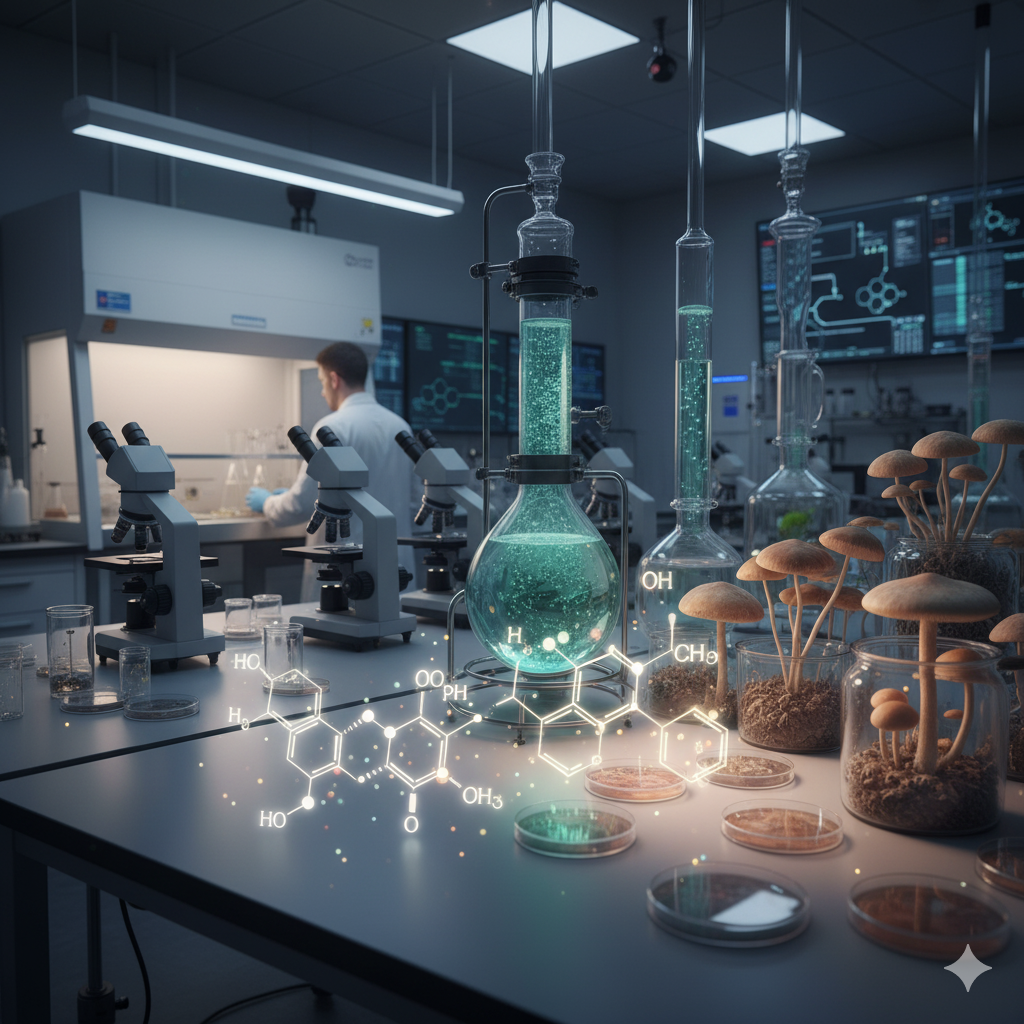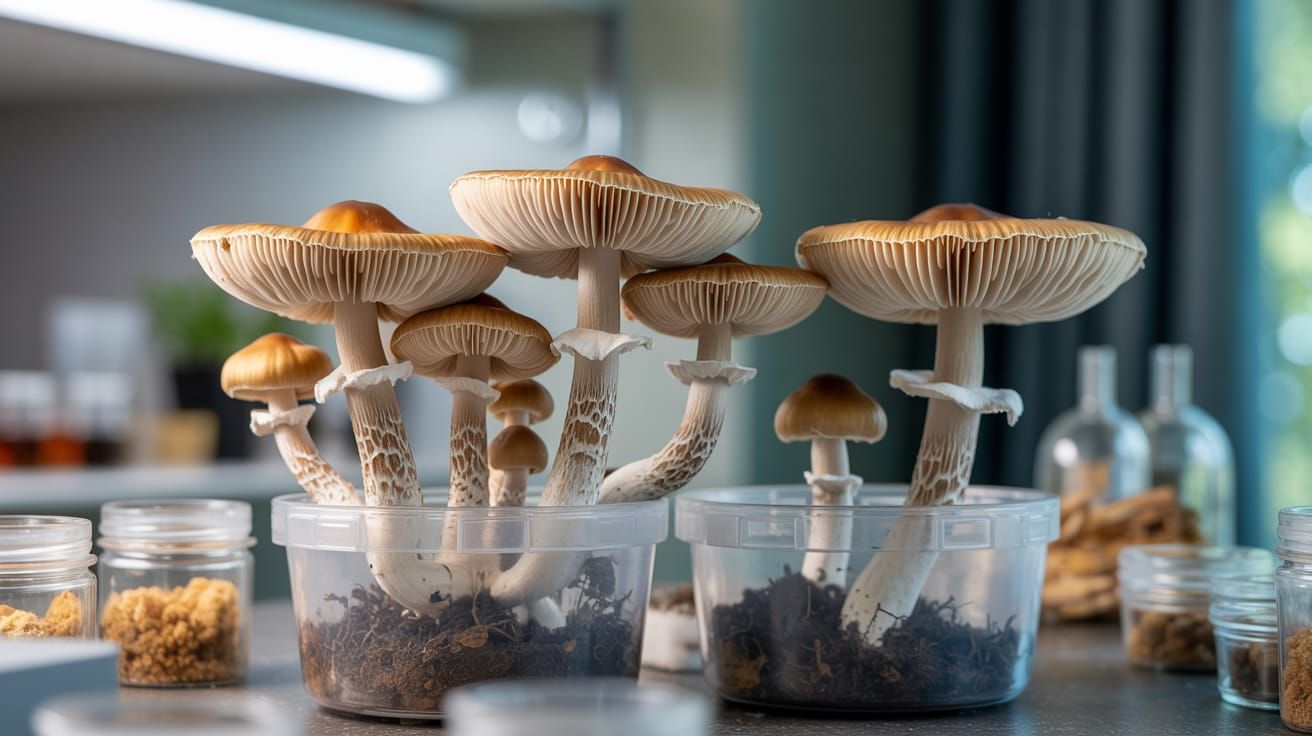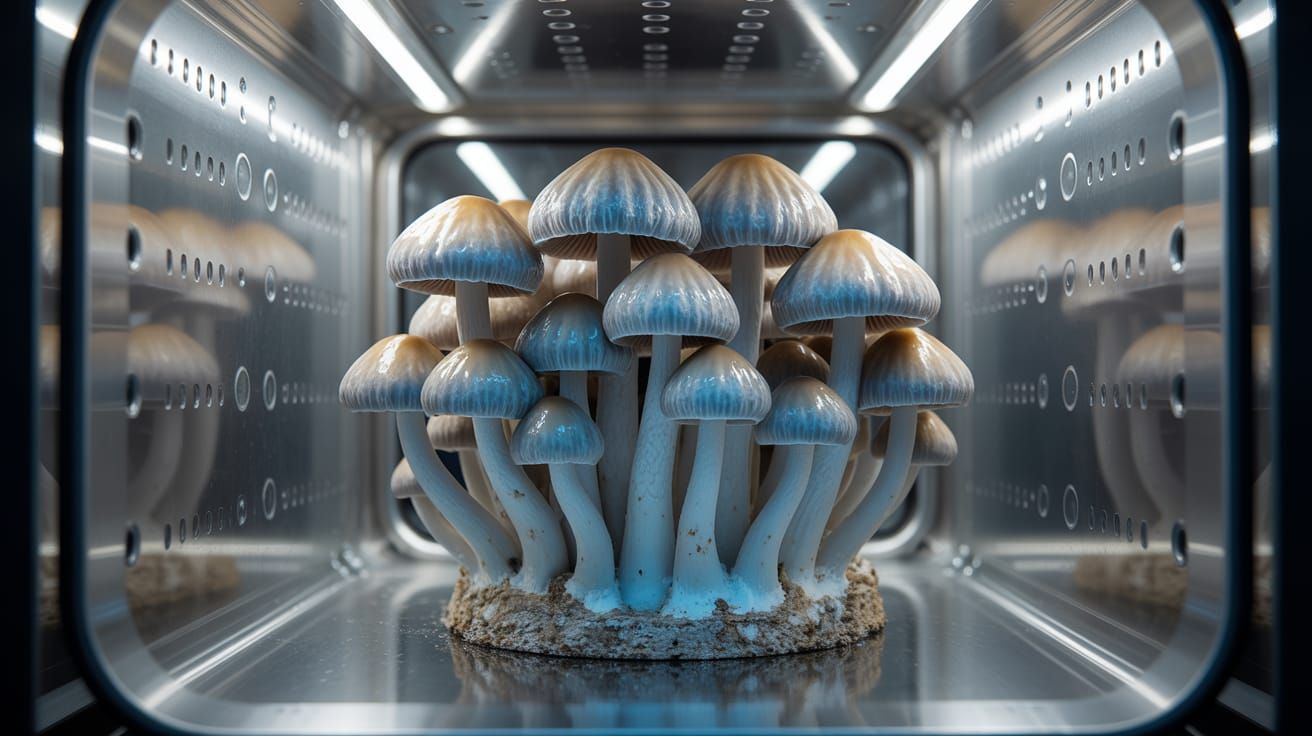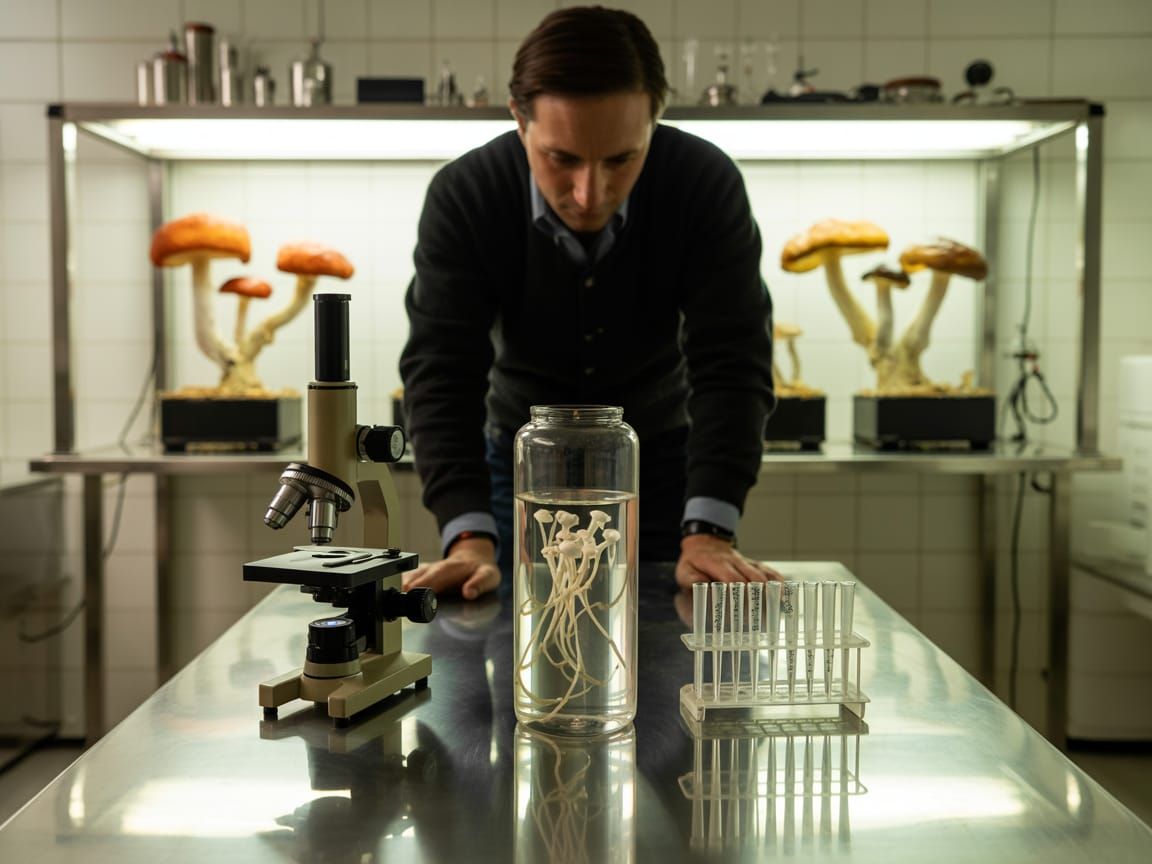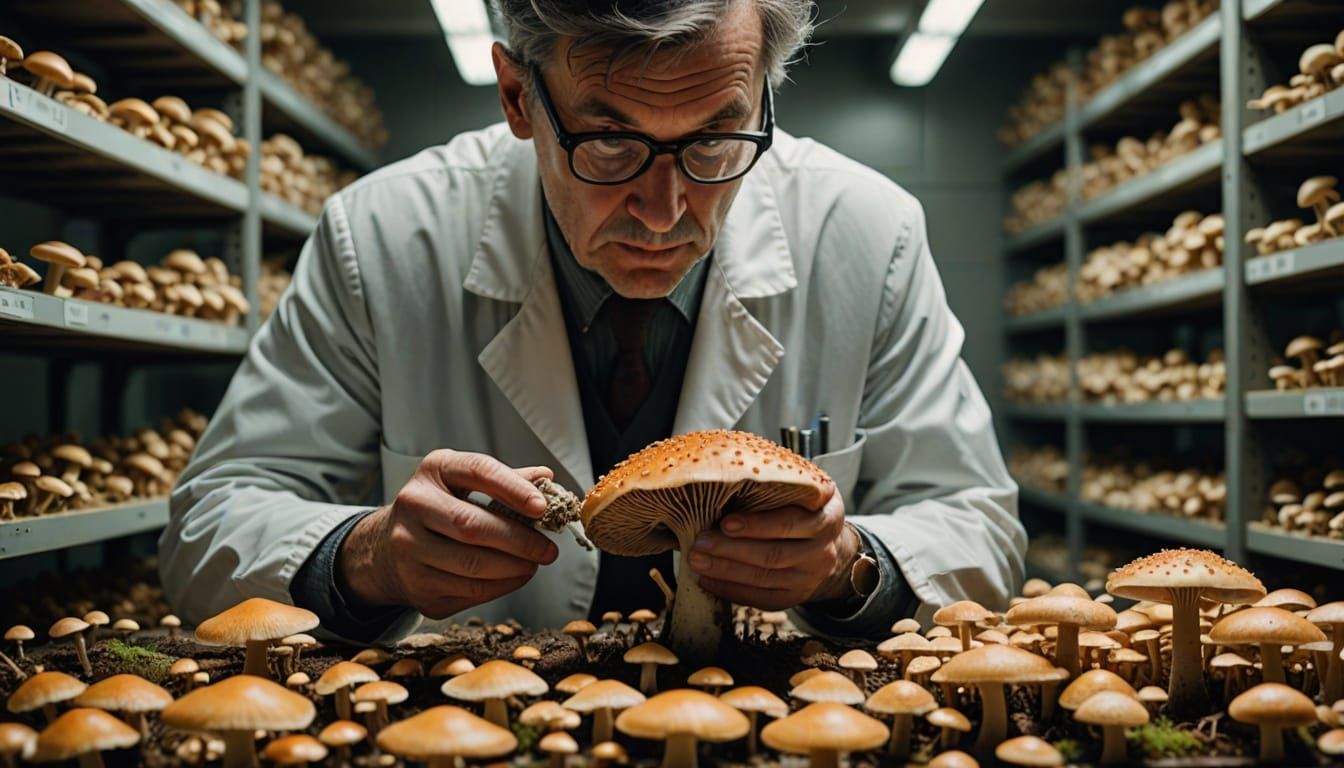Scariest Mushrooms Uncovered — Mycofreaks of Nature
Freaky mushrooms that are actually real

Creepy Fungi Worth a Look This Halloween
Un-earth the science behind nature’s most chilling mushrooms Autumn nights, fallen leaves, and damp soil — perfect conditions for fungi. But some mushrooms are more than just quietly growing; they raise the hairs on the back of your neck. Below are some of the creepiest mushrooms known to science, each with their own nightmarish biology and Halloween-worthy reputation.
1. Omphalotus olearius (Jack-o-Lantern Mushroom)
This orange-cap fungus emits a faint greenish glow at night, caused by a reaction between luciferase enzymes and riboflavin compounds in its gills. It’s often mistaken for edible chanterelles, but ingestion results in violent vomiting and cramps.
Why scary: Its ghostly bioluminescence and deceptive appearance.
Science note: The toxins illudin S and T interfere with human cell function, making this mushroom beautiful but dangerous.
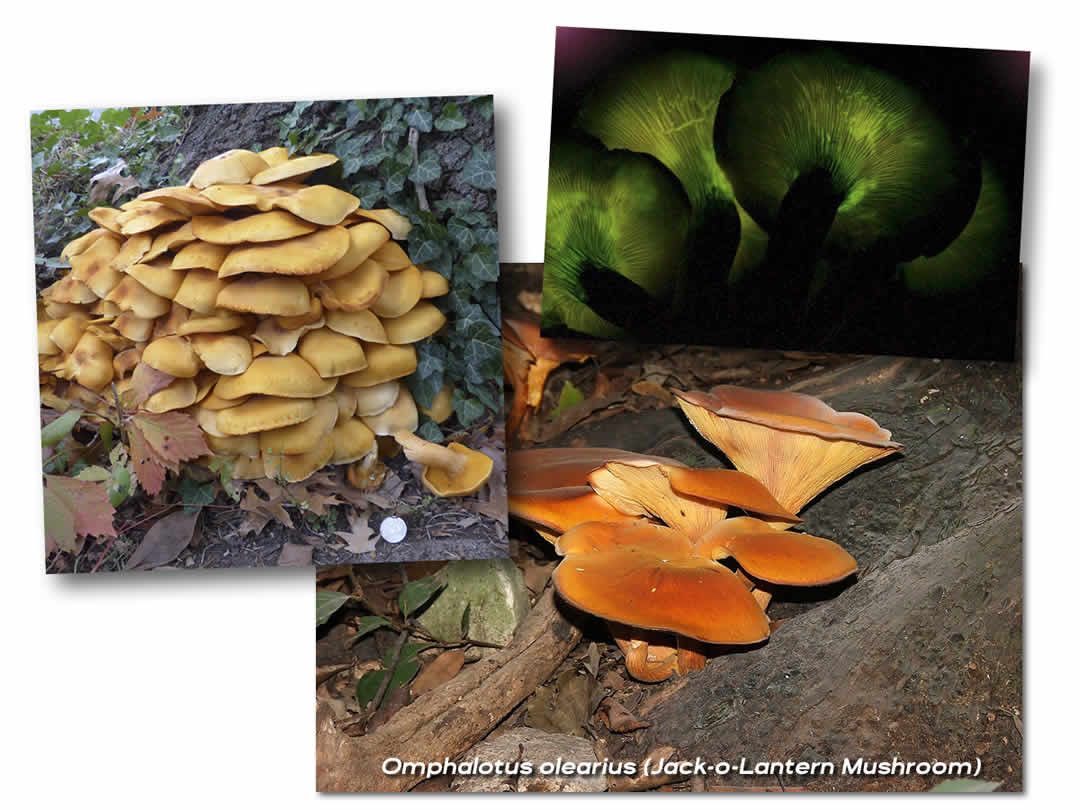
2. Clathrus archeri (Devil’s Finger)
Erupting from an egg-like sac, this fungus displays red, finger-like arms that reek of rotting flesh. The smell attracts flies, which spread its spores.
Why scary:
Looks like a hand clawing from the grave.
Science note:
The fungus practices carrion mimicry, using stench and color to trick insects into dispersing its reproductive material.
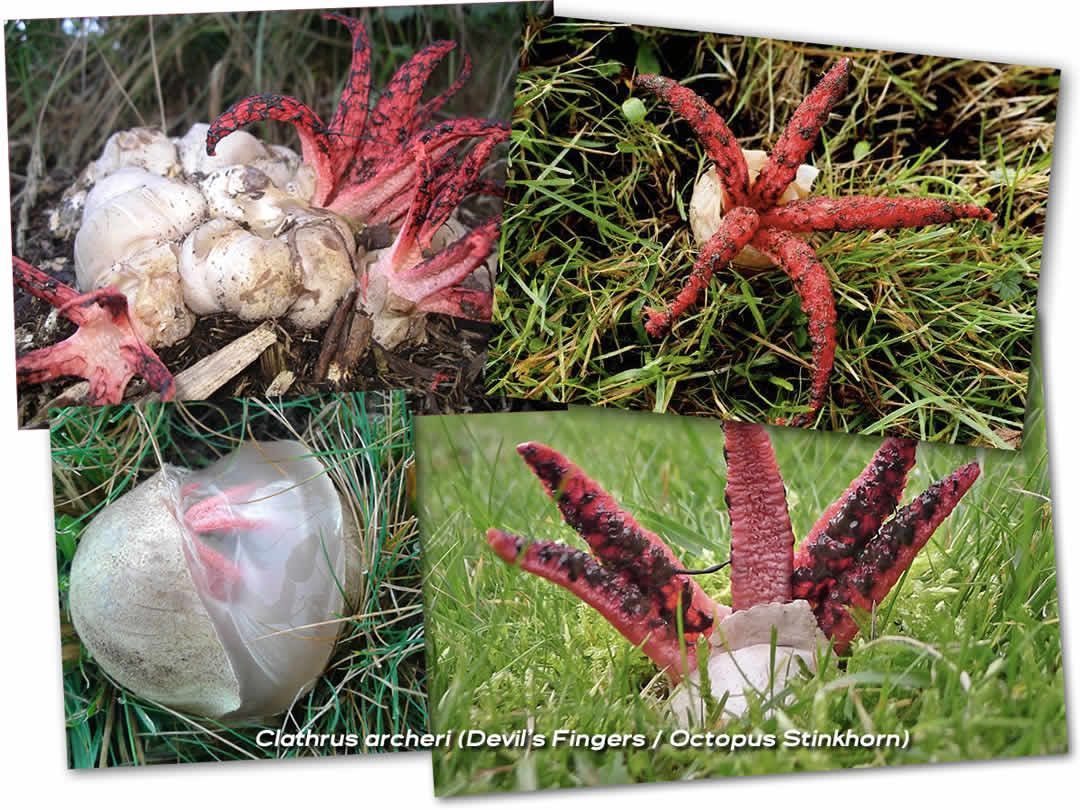
3. Mycena haematopus (Bleeding Mycena)
This small woodland mushroom oozes a dark red latex when cut or broken.
Why scary: The “bleeding” effect resembles a forest wound.
Science note: The pigment serves antimicrobial protection and may deter grazing insects.
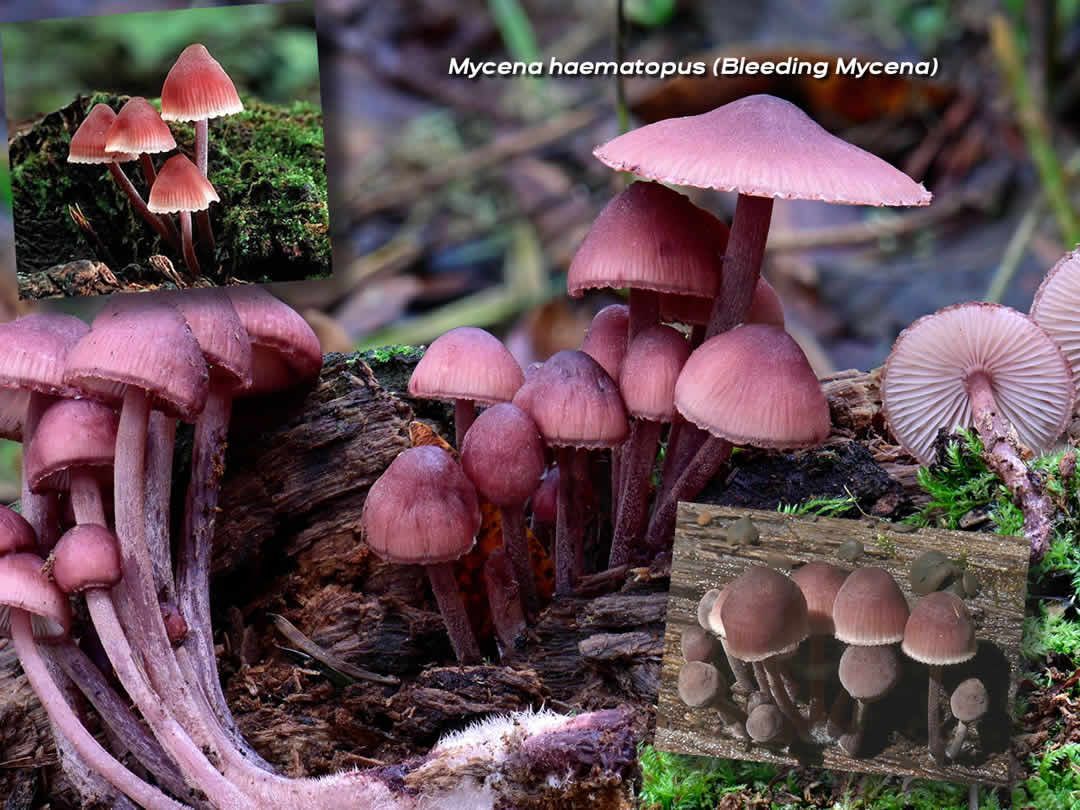
4. Pseudocolus fusiformis (Stinky Squid Fungus)
This stinkhorn bursts from a white “egg” into a slimy, tentacled structure dripping with spore-laden goo. The foul smell of decaying meat lures flies.
Why scary: Tentacle-like arms rising from the soil make it one of the most unsettling species in the fungal world.
Science note: The sticky gleba carries millions of
mushroom spores
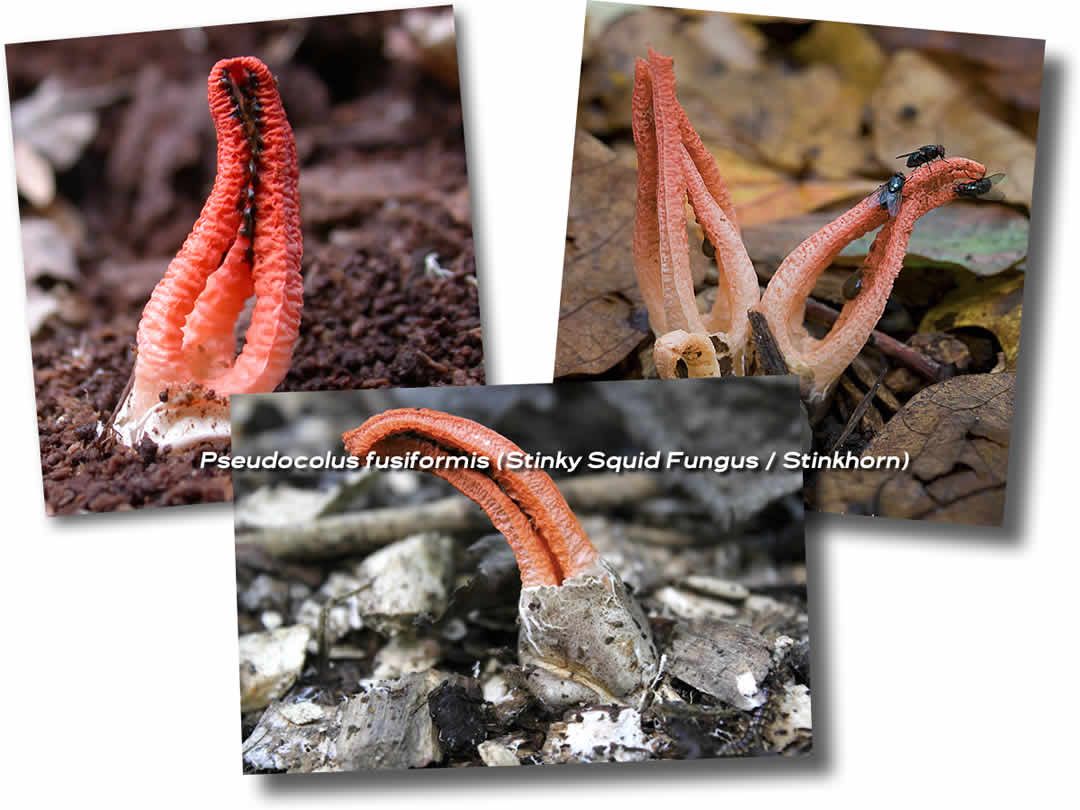
5. Cordyceps militaris (the “Zombie-Ant” Fungus)
This parasitic fungus invades an insect’s body, replacing its tissues and forcing it to climb to a high perch before dying — ensuring better spore dispersal.
Why scary: True mind-control — a fungus that turns hosts into puppets.
Science note: Cordyceps produces compounds like cordycepin, altering host behavior and illustrating how fungi can manipulate entire ecosystems.

Why mushrooms can be genuinely unsettling
Beyond these terrifying specimens, fungi inspire fear because of their biology:
- Rapid transformation: Fruiting bodies appear overnight, alien-looking and otherworldly.
- Parasitic control: Cordyceps-type fungi showcase nature’s version of zombie horror.
- Bioluminescence & toxins: Some glow eerily in the dark, others contain potent hallucinogens or toxins.
- Decay & death: Many feed on decomposing matter, visually connecting them to mortality.
- Hidden networks: Massive underground mycelial webs link forests in silence, unseen and unstoppable.
For horror lovers and science enthusiasts, mushrooms blur the line between fascination and fear — the perfect subject for Halloween.
A Halloween Treat for Mycologists
At Spores101 we celebrate the weird and wonderful world of fungi — from the harmless to the horrifying. This season, explore our Halloween Sale with a special discount code valid until Nov 15th 2025.
USE CODE: FREAKYMUSH to get 15% off any order!


